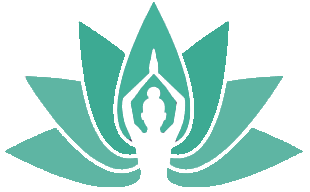Rishikesh Yoga Teacher Training School
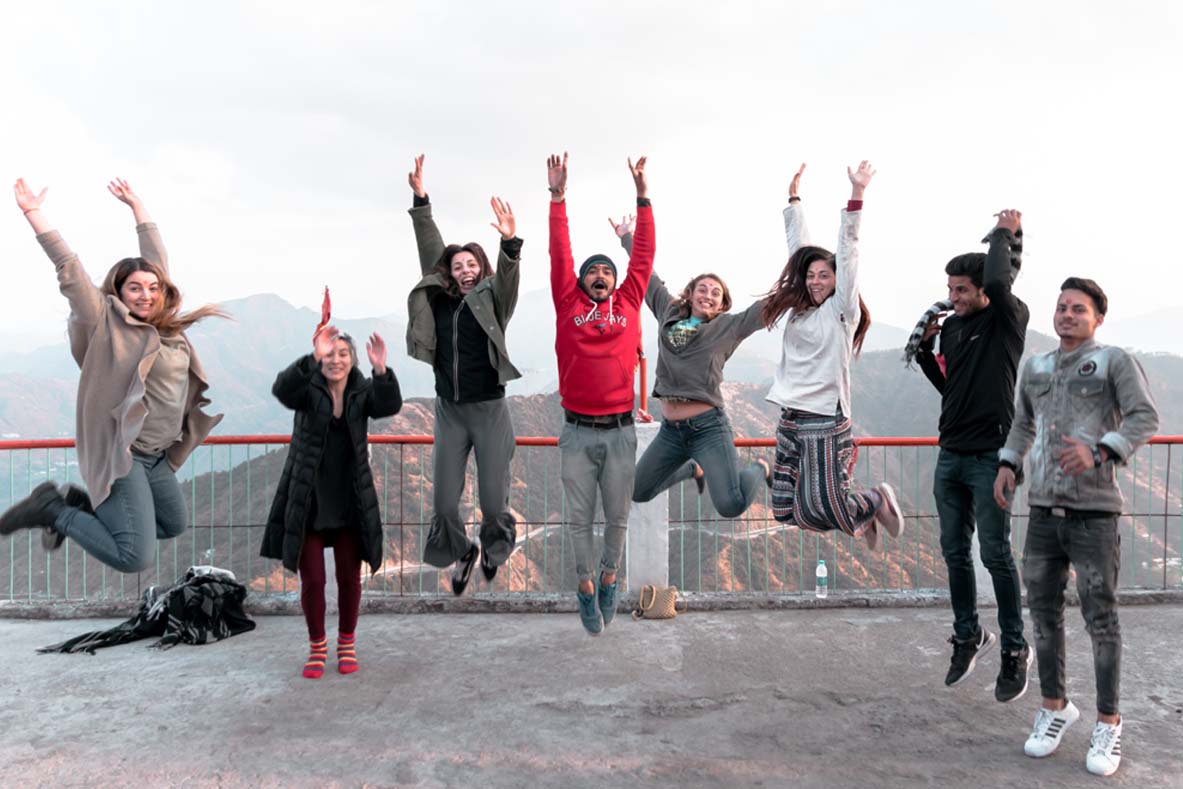
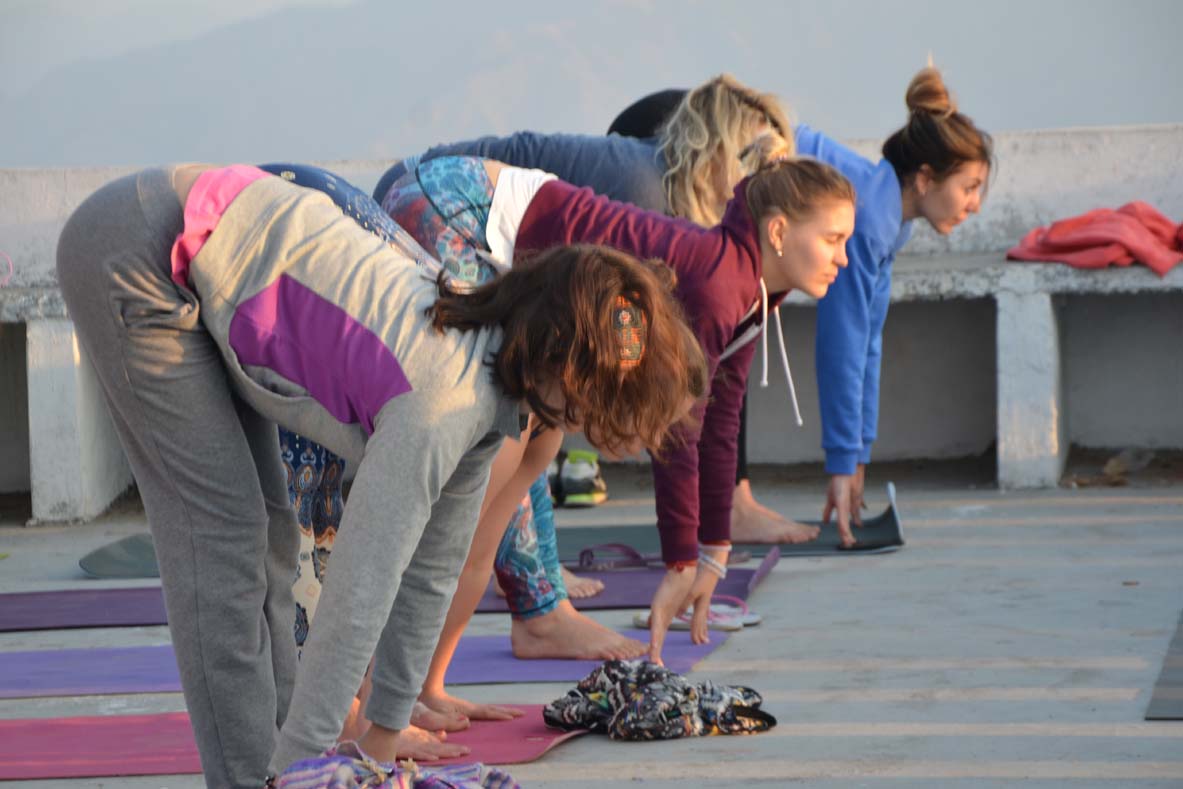
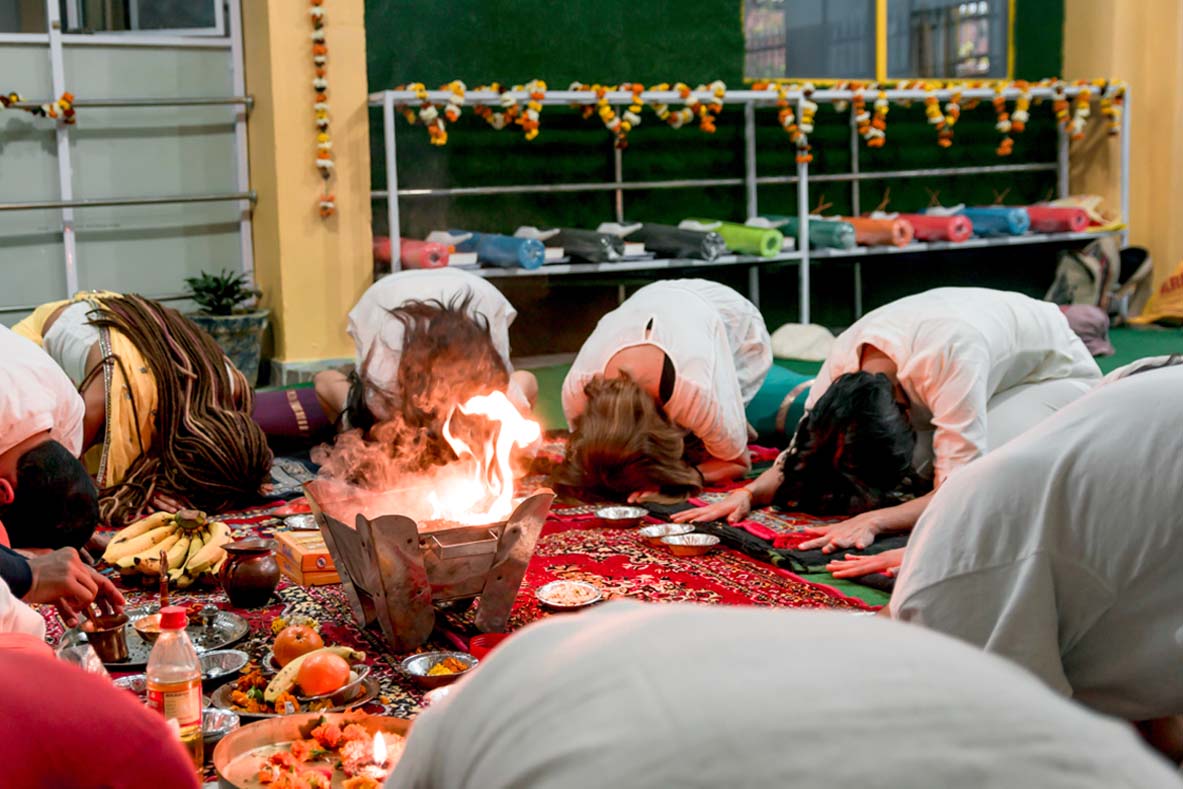
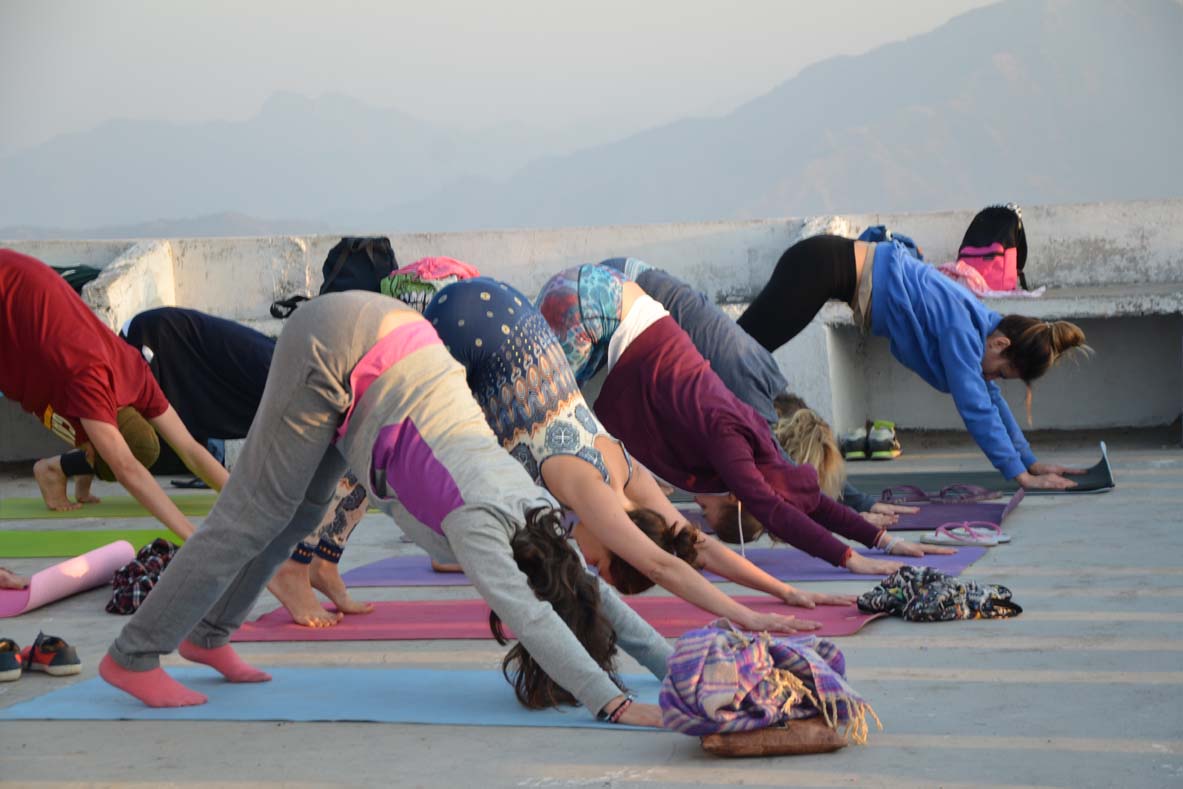
300 Hour Yoga Teacher Training Course in Rishikesh :-
Rishikesh Yoga Teacher Training School Provides the Best 300 Hour Yoga Teacher Training in Rishikesh India because of their best teaching methods & focus on their teachers.
A 300-hour yoga teacher training Course is an advanced-level program that builds upon the foundational knowledge gained in a 200-hour training. It provides a more comprehensive understanding of yoga philosophy, asanas (poses), pranayama (breathing exercises), meditation, anatomy, and teaching methodologies. This training is typically suitable for individuals who have completed a 200-hour training and wish to further expand their skills and knowledge.
At our Yoga Center, we always advocate small batches to promote student-teacher interactions and enhance the learning experience.
Why choose 300 hour Yoga Teacher Training Course?
Choosing a 300-hour Yoga Teacher Training Course can be a great option for several reasons:
1- Deepening knowledge and understanding:- A 300-hour training allows you to delve deeper into the various aspects of yoga. It provides a more comprehensive understanding of yoga philosophy, anatomy, advanced asanas, pranayama techniques, meditation, and other related subjects. This expanded knowledge can greatly enrich your personal practice and teaching abilities.
2 – Enhanced teaching skills:- The additional 300 hours of training provide you with more opportunities to refine your teaching skills. You will learn advanced teaching methodologies, sequencing techniques, and how to adapt the practice to different student needs. This training equips you with the tools to create well-rounded and transformative yoga classes.
3 – Specialization and personal growth:- The extended training allows you to specialize in specific areas of yoga that interest you. You can choose to focus on advanced asana practice, meditation, yoga therapy, prenatal yoga, or any other specialization offered by the training program. This specialization not only adds depth to your practice but also opens up new opportunities for teaching and personal growth.
4 – Career advancement:- Completing a 300-hour training can provide you with a competitive edge in the yoga industry. Many yoga studios and centers prefer hiring teachers with advanced training and a broader skill set. It also allows you to offer specialized workshops, retreats, and private sessions, expanding your career prospects and potential income.
Course Details :-
- 32 Days Accommodation
- Free Yoga Materials
- Weekend Excursion
- Comfortable Accommodation
- Sattvic Meals
- Morning Himalyas Tour
DAILY SCHEDULE :-
| Time | Activity |
|---|---|
| 05:00 | Morning bell |
| 05:30 – 06:00 | Morning tea |
| 06:00 – 06:30 | Mantra chanting & shatkarma |
| 06:30 – 08:30 | Hatha Yoga |
| 08:30 – 09:30 | Pranayama (yogic breathing) |
| 09:30 – 10:30 | Breakfast / self-study |
| 11:00 – 12:30 | Yoga lectures |
| 13:00 – 14:00 | Lunch |
| 14:00 – 15:30 | Rest / self-study |
| 15:30 – 16:45 | Yoga lectures |
| 17:00 – 19:00 | Ashtanga Vinyasa yoga |
| 19:15 – 20:00 | Meditation / guest lectures |
| 20:00 – 21:00 | Dinner time |
| 22:00 | Sleep |
Aim and objective :-
- Learn and understand yoga from the soul.
- Authentic Yoga Teacher Training in Rishikesh.
- Understanding the benefits of yoga in our day to day life.
- Practicing Mudras, Pranayama, Kriyas, and Dhyana.
- Building Class conducting techniques.
- Eradicating flaws in thee Yoga Asana.
some key aspects of a 300-hour yoga teacher training:
1- Duration:- A 300-hour training is typically longer than a 200-hour training, ranging from four to six weeks or more. The extended duration allows for more in-depth exploration of advanced yoga practices and concepts.
2 – Curriculum:- The curriculum of a 300-hour training expands upon the topics covered in a 200-hour training. It includes advanced asanas, pranayama techniques, meditation practices, yoga philosophy, anatomy, teaching methodology, sequencing, adjustments, and more. The curriculum may also include specialized topics such as yoga therapy, prenatal yoga, or specific styles of yoga.
3 – Advanced Asanas: The training focuses on refining and deepening your asana practice. You will learn more advanced poses, variations, modifications, and alignment principles. Additionally, you may explore the energetics and therapeutic applications of different asanas.
4 – Philosophy and Spirituality:- The philosophical aspects of yoga are explored in greater depth during a 300-hour training. You may delve into ancient yogic texts such as the Yoga Sutras, Bhagavad Gita, and Hatha Yoga Pradipika. Discussions on yoga philosophy, ethics, and the spiritual dimensions of the practice are common.
5- Teaching Methodology:- The training includes advanced teaching techniques to help you refine your skills as a yoga teacher. You will learn how to sequence classes for different levels, adapt the practice for individual needs, offer hands-on adjustments, provide modifications and variations, and create a safe and inclusive teaching environment.
6 – Self-Practice and Personal Development:- A 300-hour training emphasizes the importance of personal practice and self-inquiry. Participants are encouraged to deepen their self-awareness, explore their own practice, and develop a personal philosophy of yoga. This self-reflection and personal growth are integral to becoming an effective and authentic yoga teacher.
7 – Certification: Upon completion of a 300-hour training, you will receive a certificate recognizing your advanced training. This certification, combined with your 200-hour certification, demonstrates a higher level of expertise and can enhance your career prospects as a yoga teacher.

300 Hour Yoga Teacher Training Course Syllabus
Pranayama :- Pranayama is a set of Yogic Techniques and practices generally defined as breath control and is on its own considered a science.
Here is what you’ll learn on the subject:
- Introduction of pranayama
- Benefits of pranayama
- The Pranic body
- Prana and lifestyle
- Breath, health & pranayama
- Pranayama and the spiritual
Meditation :- Meditation is a practice that involves training the mind to focus and redirect thoughts, leading to a state of calmness and clarity.
Here is what you’ll learn on the subject:
- Introduction of Meditation
- Benefits of Meditation
- Meditation and the spiritual
Bandhas Energy Locks :-Bandhas are energy locks provoked by the contraction of certain groups of muscles and are widely used in yoga practice. Here’s a glimpse of what you’ll learn on the subject :
- Preparation for Bandha.
- Benefits of Bandha.
- Mula Bandha.
- Jalandhara Bandha.
- Uddiyana Bandha.
Mantra chanting :- Mantras play a big role in daily Yogic life. Mantras are sounds, and prayers that carry huge energy and vibration. We’ll teach to sing:
- Opening mantra
- Om chanting
- Gayatri Mantra
- Guru Vandana (prayer to Guru)
- Student and master mantra
- Patanjali mantra (ashtanga mantra)
- Completeness mantra
Hatha Yoga :- Indian traditional yoga style is called “Hatha” (“ha” means sun “Tha” means moon) Unifying the sun and the moon within (Yin and Yang). It’s a physical method for preparing and maintaining the body, providing stamina flexibility Balance and strength. This is the most traditionally popular and beneficial yoga style. What you’ll practice:-
Joints warm ups (Pawanmuktasana series a, b and c) :-
- Surya namaskara (sun Salutation) & Chandra Namaskara (moon salutation)
- Yoga Mudrasana
- Matsyasana
- Gupta Padmasana
- Baddha Padmasana
- Kukkutasana
- Garbhasana
Backward Bending Asanas :-
- SaralBhujangasana (Easy cobra pose)
- Bhujangasana (Cobra pose)
- TiryakaBhujangasana (twisting cobra pose)
- Sarpasana (snake pose)
- ArdhaShalabhasana (half locust pose)
- Shalabhasana (locust pose)
- SaralDhanurasana (easy bow pose
- Kandharasana (shoulder pose)
- Ardha Chandrasana (half moon pose)
- Setu Asana (bridge pose)
- Gomukhasana (cow’s face pose)
Forward Bending Asanas :-
- Paschimottanasana (back stretching pose)
- GatyatmakPaschimottanasasna (dynamic back stretch pose)
- PadaPrasarPaschimottanasana (legs spread back stretch pose)
- JanuSirshasana (head to knee pose)
- Ardha Padma paschimottanasana (half lotus back stretching pose)
- Hasta PadaAngushthasana (finger to toe stretch)
- Padahastasana (hand to foot pose)
- SirshaAngusthaYogasana (head to toe pose)
- Utthitajanusirshasana (standing head between knees pose)
Spinal twisting & Advanced Asanas :-
- ArdhaMatsyendrasana (half spinal twist)
- ParivrittiJanuSirsasana (spiralled head to knee pose)
- Poornabhujangasana (full cobra pose)
- Kurmasana (tortoise pose)
- Poornashalabhasana (full locust pose)
- PoornaDhanurasana (full bow pose)
- Dhanu-rakarshan-asana (archer’s posed)
- Chakrasana (wheel pose)
- Hanumanasana (leg splitting pose)
- Poornamatsyendrasana (full spinal twist pose)
- Mayurasana (peacock pose)
- Padma mayurasana (Lotus or bound peacock pose)
- Gorakshasana (Yogi Gorakhnath’s pose)
- Astavakrasana (eight-twists pose)
- Vrischikasana (scorpion pose)
- Inverted pose, balancing pose and core pose
Shatkarma is the Sanskrit term for one of the six yogic purification techniques (kriyas) as outlined in the “Hatha Yoga Pradipika.” The purpose of these cleansing techniques is to keep the body strong, clean and healthy. They remove toxins and anything blocking the flow of prana in the body.
Practicing shatkarma internally purifies the body, and makes pranayama and meditation practice easier by preparing the body to perform these practices without distraction, discomfort or fatigue. This is a traditional yogic cleansing technique which is very effective and good to remove many illnesses and open the body blockages.
You’ll learn:
- Jal Neti.
- Ruber Net.
- Sutra Neti.
- Kunjal Neti.
An intensive and integral part of yoga, Ashtanga yoga style requires deep commitment and self-practice to achieve the goal. The Pyramid’s yoga instructors are experienced teachers and advanced practitioners of the Ashtanga style and will guide you safely through the hardest postures. you’ll learn the complete Led primary series:
Standing poses :-
- Hasta Padangusthasana & Pada Hastasana
- Utthita Tri Konasana
- Parivrtta Tri Konasana
- Utthitan Parsva Konasana
- Parivrtta Parsva Konasana
- Prasarita Padottanasana A, B, C & D
- Utthita Parsvottanasana
- Utthita Hasta Padangusthasana
- Utthita Parsvasahita
- Utthita Eka Padasana
- Ardhabaddha Padmottanasana
- Utkastasana
- Virabhadrasana A,B and C
- Primary Asanas
- Paschimottanasana A, B and C
- Purvottanasana
- ArdhaBaddha Padma Paschimottanasana
- Tirieng Mukha Eka Pada Paschimottanasana
- JanuSirsasana A,B and C
- Marichyasana A,B and D
- Navasana
- Lolasana
- BhujaPidasana
- Kurmasana
- GarbhaPindasana
- Kukkutasana
- BaddhaKonasana A & B
- Konasana A & B
Intermediate Asanas :-
- Salabhasana A & B
- Dhanurasana
- Ustrasana
- Kapotasana A & B
- SuptaVajrasana
- Bakasana A
- Bakasana B Jump
- ArdhaMatsyendrasana
- Yoga Nidrasana
- Tittibhasana
- PichaMayurasana
- Vatayanasana
- Gomukhasana A & B
- Hasta Sirsasana (head stand)
Advanced A (optional) :-
- Kasyapasana
- Bhairavasana
- UrdhvaKukkatasana A
- Galavasana
- EkaPadaViparitaDandasna
- VipritaSalabhasana
- GandhaBherundasana
- Hanumanasana
- Natrajasana
- Raja Kapotasana
Yoga Philosophy :- The history of yoga, the sutras of Patanjali and the importance of yoga and its origins in India, are the subjects of these classes and lectures. Questions will be addressed and you will deepen your knowledge about yoga.
Yoga Anatomy :- Anatomy classes expose how the body, bones, inner systems, and respiration ar/ affected by asanas and the flow of breath. To know The basic structure and function of the organs and systems is very important to practitioners, so that their work as yoga teacher can be safe and beneficial to future students.
This is what you’ll learn:
- Complete Body Anatomy
- Skeleton system
- Muscular system
- Circulatory system
- Nervous system
- Respiratory system
During these classes, you will learn how a perfect posture should be. You will also learn how to connect with your future students through correct class verbal guidance and touch adjustment, and about recurrent yoga injuries and how to prevent them.
Teaching methodology is one the most important part of the course as our students will learn the following:
- How to conduct a class.
- Classroom management.
- How to get in and come out from the posture.
- How to assist & help while teaching the class.
- Which kind of words you should be using as a yoga teacher.
- What makes you different than other teachers in terms of teaching.
- Which kind of asanas you should recommend with different health issue.
- How to use belts, bolster, bricks and chair during the class adjustment.
FOOD & ACCOMMODATION
Clean and comfortable accommodation comprises of single private rooms and double shared rooms with attached washrooms. Three highly nutritious, healthy and sattvic meal per day (Breakfast, Lunch and Dinner). Our yogic diet food is perfect for nourishing the mind, body and soul. Detox and herbal teas are served twice a day.
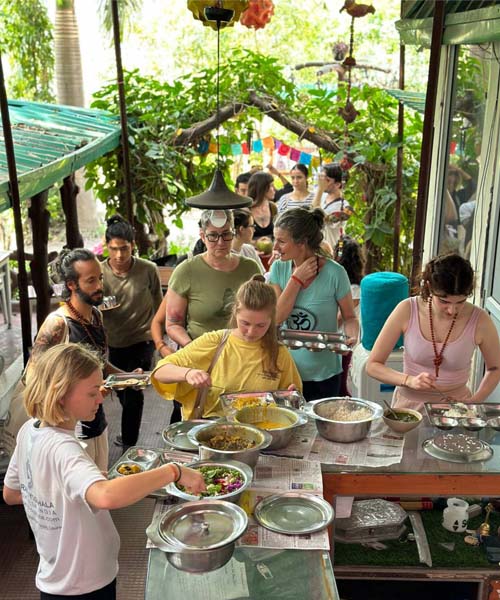
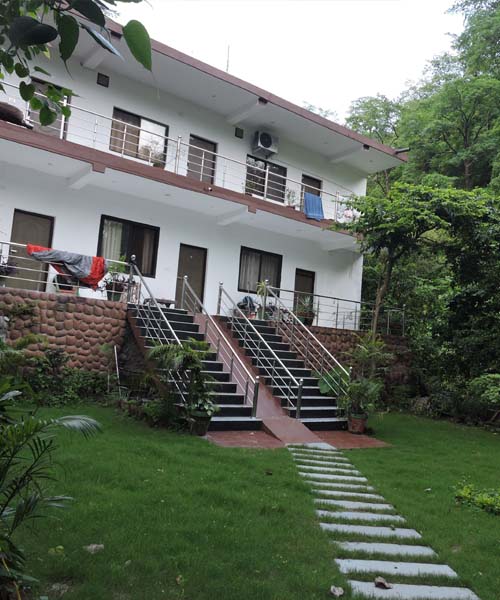
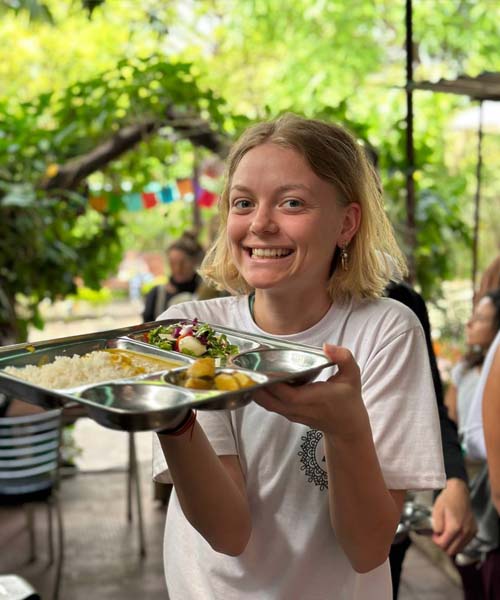

300 Hour Yoga Teacher Training Course Fee :-
| ACCOMMODATION TYPE | PRICE PER PERSON |
|---|---|
| Quad Room | 499 USD |
| Shared Room | 599 USD |
| Private Room | 699 USD |
300 Hour Yoga Teacher Training Course Dates :-
- What is included ?
- What is not included ?
- 32 Days – 31 Nights Accommodation
- Daily nutritious vegetarian meals and tea
- Weekend excursions
- Yoga material
- One the Himalayas sightseeing trip
- Free pick-up from Dehradun airport.
- Fire Ceremony.
- Wifi
Note:- Pickup/Drop-off, Massage is not included in Indian National Course fee.
- Air fare
- Additional meals
- Additional stay
- Outdoor Meals
- Travel insurance
- Drop off from the school to airport, bus station etc.
- Visa fees.
- Personal expenses
Note:- Heater/Ac Charges: 250 INR/Day.
Note:- All classes are mandatory only in case of an emergency or illness one can take leave with respected teacher permission. Uninformed leaves won’t be accepted and this will leave bad impression on student monthly performance.
Discipline Rules for Students :- Smoking and alcohol are strictly prohibited in the school. If you are having a fast any day, you have to inform kitchen manager for avoiding food waste. Always make discipline, respect teachers and follow all rules. Always be in the time, you are late means will not be permitted to join class. Clear your books of account before departure from Rishikesh Nath Yogshala. Before departure return your books, maps or any goods which you borrowed. Rishikesh Nath Yogshala provides accommodation for a student who join the yoga course. So any friends or relatives will not be included in accommodation however they can stay in school by renting another room. Student have to be present in all scheduled program of Rishikesh Nath Yogshala.
Refund Policy :- An advance of a course fees will not be refundable, only in the case of emergency students can join us on other schedules. If student cancel the course after joining it, we accept cancellation but course fees will not be refund in cancellation. There is no charge of course cancellation.
Our Yoga Teacher For 300 Hour Yoga TTC

Raghav Khantwal ji holds a Master's degree in Yogic Sciences (M.A. Yogacharya) and has been teaching yoga philosophy and anatomy since 2016. He has experience working with Doordarshan and the Central Council for Research in Yoga and Naturopathy under the Ayush Ministry as a yoga instructor. Additionally, he has served as a TTC teacher in Kunming, China.

Mukesh Singh is an experienced Ashtanga yoga teacher from Rishikesh. He has trained in various yoga styles, including Ashtanga, Hatha, Vinyasa, and Iyengar, along with mastering Mantra Chanting and Shatkarma. His yoga journey has taken him across international borders, with frequent visits to China, Thailand, and other Asian countries. Passionate about yoga since childhood.
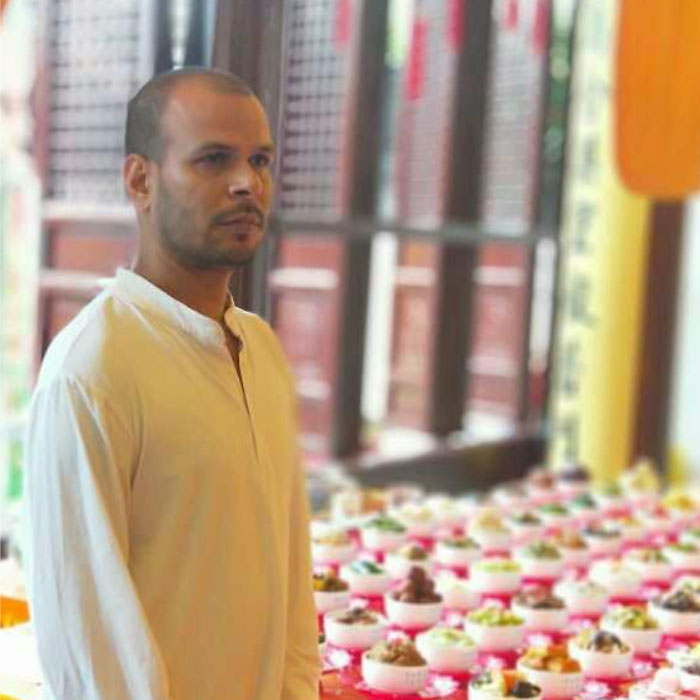
Direndra Ji is a highly experienced teacher in Yoga Philosophy, meditation, pranayama, and other yogic disciplines. With over 12 years of traditional monastic education and more than two decades of teaching experience. Direndra Ji holds a B.Sc. in Biology from Jiwaji University, Gwalior. He studied yoga under Shri Urjanand Saraswati Maharaj and earned a P.G. Diploma in Yoga Therapy from Kaivalyadham, Lonavala.
